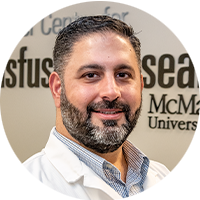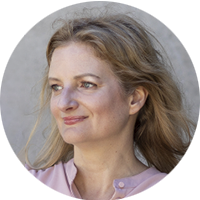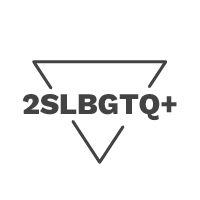Immune Science




Canadian COVID-19 Prospective Cohort Study (CANCOV)
Angela Cheung and Margaret Herridge, University Health Network
The Canadian COVID-19 Prospective Cohort Study (CANCOV) aims to provide a comprehensive evaluation of early to one-year outcomes in 2,000 patients with COVID-19 infection and 500 family caregivers from the four hardest-hit provinces in Canada: Quebec, Ontario, Alberta, and British Columbia.
Research summary Results Study website View study on 

Understanding immunity against SARS-CoV-2
Michael Grant, Memorial Universty of Newfoundland
This study systematically assesses the strength, specificity, nature, and durability of antibody and cellular immune responses generated against SARS-CoV-2 in relation to severity of infection — in previously infected individuals.
Research summary Results Lab website View study on 




Predicting sustained SARS-CoV-2 antibody responses after COVID-19 infection
Daniel Kaufmann and Andrés Finzi, Centre hospitalier de l’Universite de Montreal
This study focuses on early clinical and immunological features of COVID-19 that can predict the emergence of protective and durable immune responses.
Research summary Results Lab website View study on 

Analysis of Antibody Neutralization Efficiency and Cellular Immunity in SARS-CoV-2-Positive Individuals Identified in At-Risk Individuals
Marc-André Langlois, University of Ottawa
Researchers will follow 500 healthy but at-risk individuals, and 500 individuals who have previously tested positive for SARS-CoV-2 or have received a vaccine to determine how much protection antibodies provide against repeat exposure to the virus and how long this protection, as well as the immunity provided by vaccines, will last.
Research summary Results Lab website View study on 

Determining long-term immune protection in COVID-19 patients
Ishac Nazy, McMaster University
This study aims to identify how the immune system responds to SARS-CoV-2 by examining different elements of the immune response, including antibodies and T cells that attack the virus, as well as immune memory B and T cells responsible for long-term protection from the virus.
Research summary Results Lab website View study on 




Can COVID-19 and maternal antibodies to SARS-CoV-2 be transmitted through human milk?Implications for breastfeeding and human milk banking
Deborah O’Connor and Sharon Unger, Sinai Health System / University of Toronto
This study aims to determine the SARS-CoV-2 transmissibility in human milk, measure associated antibodies, and examine the impact of thermal pasteurization on SARS-CoV-2 infectivity.
Research summary Results Study website View study on 




Towards a better understanding of immunity to SARS-CoV-2
Tania Watts and Mario Ostrowski, University of Toronto
The study aims to understand the immune responses to SARS-CoV-2 and how these responses might explain a good or a bad outcome. This information will be important for designing vaccines, monitoring individuals for the correct immune responses, and evaluating how people who have had COVID-19 will respond to vaccines.
Research summary Results Lab website View study on 

Addressing gaps in our understanding of the mucosal immune response to SARS-CoV-2: Implications for transmission
Jennifer Gommerman, University of Toronto
This lab has detected antibodies to SARS-CoV-2 in the saliva of COVID-19 patients. They are taking a combined approach, using an animal model and following participants for a year, to produce new information on the mucosal immune response to SARS-CoV-2 and whether it can contribute to the reduction in spread of the virus.
Research summary Results Lab website View study on 

A cell-based assay to measure immune competence in SARS-CoV-2 infection and vaccination
Sacha De Serres, Université Laval
This research team, which developed a test to help predict which transplant recipients would most likely suffer from severe infections, will assess the capacity of this test to help predict who, in the general population, will suffer severe COVID-19. They will also study whether it can predict how well immunosuppressed patients respond to SARS-CoV-2 vaccination.
Research summary Results Study website View study on 
Angela Cheung
Co-Lead PI for CANCOV (Canadian COVID-19 Longitudinal Cohort Study), University Health Network
Staff General Internist, Senior Scientist, University Health Network
Contact info
angela.cheung@uhn.ca
Key words
COVID-19
Acute respiratory distress syndrome
Severe acute respiratory syndrome
ICU
Hospitalized
Non-hospitalized
Cohort
Research interests
Integrative medicine
Genetic and clinical risk factors
Sarcopenia, osteoporosis, frailty
Sex and Gender, and Racial differences
Functional outcomes, quality of life, and health services research
Cost-effectiveness analyses, medical decision making
Publications
Pubmed
https://www.scopus.com/authid/detail.uri?authorId=7401806456
https://orcid.org/0000-0001-8332-0744
Margaret Herridge
Professor of Medicine, University of Toronto
Physician, Toronto General Hospital
Senior Scientist, Toronto General Hospital Research Institute
Co-Lead PI for CANCOV (Canadian COVID-19 Longitudinal Cohort Study), University Health Network
Director of Critical Care Research, Interdepartmental Division of Critical Care Medicine, University of Toronto
Faculty, Institute of Health Policy, Management and Evaluation, University of Toronto
Contact info
margaret.herridge@uhn.ca
Key words
COVID-19
Acute respiratory distress syndrome (ARDS)
Severe acute respiratory syndrome (SARS)
ICU
Hospitalized
Critical Care
Family caregivers
prolonged mechanical ventilation
Research interests
Long-term outcomes after ARDS
SARS
prolonged mechanical ventilation
COVID-19
RECOVER Program
Patient- and family-centred follow-up care after critical illness;
CANCOV Program
Publications
https://pubmed.ncbi.nlm.nih.gov/?term=Herridge+M%5BAU%5D+NOT+3475205%5BPMID%5D&sort=date
https://www.scopus.com/authid/detail.uri?authorId=6701511275
https://orcid.org/0000-0002-2903-1631
Canadian COVID-19 Prospective Cohort Study (CANCOV)
Co-led by Dr. Angela M. Cheung and Dr. Margaret S. Herridge, CANCOV is a consortium of interdisciplinary investigators and clinicians leading multiple COVID-19 studies across Canada. Our research ranges from genomics and epigenomics to antibody testing and immune analyses.
This study involves the recruitment of 2,000 patients (1,000 non-hospitalized and 1,000 hospitalized) and 500 family caregivers from the four hardest-hit provinces in Canada: Quebec, Ontario, Alberta, and British Columbia. Our research includes three COVID-19 population cohorts: non-hospitalized patients, non-ICU patients, and ICU patients.
This research program intends to:
- Characterize the myriad health consequences of COVID-19, including short- and long-term outcomes and those of the family caregivers;
- Determine the clinical risk factors, timing, and pace of recovery across the spectrum of COVID-19 disease;
- Provide detailed clinical descriptions for genetic, basic science, translational, and multi-omics research inquiry; and
- Facilitate the creation of prediction models and tools, using machine learning and artificial intelligence, as well as secondary clinical studies.
CANCOV will raise the standard of care for patients with COVID-19 and shorten the time to translate knowledge into practice. Insights from this large-scale project will enable Canada to improve COVID-19 clinical care and help service providers and policymakers make better decisions.
Michael Grant
Michael Grant, PhD
Professor of Immunology, Memorial University of Newfoundland
Associate Dean, BioMedical Sciences
Contact information
mgrant@mun.ca
Key words
CD8, T cell, CTL, NK cell, ADCC, HIV, CMV, Aging, Immune senescence
Research Interests
– Immunology of viral infection
– Aging of the immune system
– Regulation of NK cells
Understanding Immunity Against SARS-CoV-2
Characterizing the immune response against SARS-CoV-2 in those who have recovered from infection is essential to knowing if their immune responses will confer protection against future infection. It also provides important information for evaluating vaccines and immune-based treatments directed against SARS-CoV-2. This research project systematically assesses the strength, specificity, nature, and durability of antibody and cellular immune responses generated against SARS-CoV-2 in relation to severity of infection — in previously infected individuals. We are also assessing the same features of immunity in uninfected SARS-CoV-2 vaccine recipients.
Our study involves the recruitment of individuals who have recovered from confirmed SARS-CoV-2 infection. We are also testing individuals who have been in contact with infected persons to identify subjects who had very mild or asymptomatic SARS-CoV-2 infection. With blood samples from these subjects (as well as recovered individuals with moderate disease, persons hospitalized for SARS-CoV-2 infection, and vaccinated individuals), we will test and compare how their antibodies and immune cells interact with SARS-CoV-2 proteins, how these interactions affect SARS-CoV-2 in cell culture, and how these interactions change over time.
These experiments should identify: 1) parts of the virus targeted by successful immune responses; 2) parts of the virus targeted by detrimental immune responses; and 3) the strength of immune responses required for protection from infection. Analysis of these data will guide vaccine evaluation — by comparing the immune responses generated by different vaccine formulations with those generated in natural infections of varying severity.
Results: Understanding Immunity Against SARS-CoV-2
Daniel Kaufmann
Full Professor, Department of medicine, Université de Montréal
Internist and infectious disease specialist
Department of Medicine, CHUM
Principal Investigator
Key words
HIV
SARS-CoV-2
Antiviral T cell responses
immunopathogenesis
viral reservoirs
HIV and SARS CoV-2 vaccines
Research interests
Daniel Kaufmann is a physician scientist. He is Professor of Medicine at the University of Montreal and its Hospital Research Center (CRCHUM). His laboratory focuses on the immunovirology of HIV and SARS-CoV-2 to develop vaccination and cure strategies. The major research areas are: i) the understanding of effective CD4 help in antiviral immunity; ii) the causes of virus-specific T cell impairment; iii) single-cell studies of HIV reservoirs; iv) COVID-19 immunopathogenesis and protective vaccine immunity.
Publications
Brunet-Ratnasingham E, Anand SP, Gantner P (…) Chomont N, Finzi A, Kaufmann DE. Integrated immunovirological profiling validates plasma SARS-CoV-2 RNA as an early predictor of COVID-19 mortality. DOI: 10.1101/2021.03.18.21253907
Zhou S, Guillaume Butler-Laporte G, Nakanishi T, (…), Forgetta V, Kaufmann DE, Richards JB. A Neanderthal OAS1 isoform protects individuals of European ancestry against COVID-19 susceptibility and severity. DOI: 10.1038/s41591-021-01281-1
Rébillard RM, Charabati M, Grasmuck C, (…) Kaufmann DE, Prat A, Larochelle C. Identification of SARS-CoV-2-specific immune alterations in acutely ill patients. The Journal of Clinical Investigation. 2021 Apr 15;131(8):145853. DOI: 10.1172/JCI145853
Anand SP, Prévost J, Nayrac M, (…) Duerr R, Kaufmann DE, Finzi A. Longitudinal analysis of humoral immunity against SARS-CoV-2 Spike in convalescent individuals up to 8 months post-symptom onset. Cell Reports Medicine. 2021. DOI: https://doi.org/10.1016/j.xcrm.2021.100290
Beaudoin-Bussières G, Laumaea A, Anand SP, Prévost J, Gasser R, Goyette G, (…) Richard J, Bazin R, FInzi A. Decline of humoral Responses against SARS-CoV-2 spike in convalescent individuals. mBio. 2020;11(5):e02590-20. DOI: https://doi.org/10.1128/mbio.02590-20
Andrés Finzi
Andrés Finzi, PhD
Canada Research Chair on Retroviral Entry, Member of The College of the Royal Society of Canada
Associate Professor, Faculty of Medicine
Université de Montréal
Centre de recherche du CHUM (CRCHUM)
Key words
HIV-1, envelope glycoproteins
SARS-CoV-2, Spike
Humoral responses
Fc-mediated effector functions
Research interests
Dr. Finzi is an expert in HIV replication and antibody effector functions. His work identified new evasion mechanisms put in place by HIV to avoid immune responses. Dr. Finzi is also interested in the conformational landscape of the SARS-CoV-2 Spike, particularly on how it affects immune responses. His work has significant translational implications on the development of new therapeutic strategies to fight HIV and SARS-CoV-2.
Publications
Prévost J, Gasser R, Beaudoin-Bussières G, Richard J, Duerr R, Laumaea A, et al. Cross-sectional evaluation of humoral responses against SARS-CoV-2 Spike. Cell Rep Med. 2020;1(7):100126. DOI: https://doi.org/10.1016/j.xcrm.2020.100126
Perreault J, Tremblay T, Fournier MJ, Drouin M, Beaudoin-Bussières G, Prévost J, et al. Waning of SARS-CoV-2 RBD antibodies in longitudinal convalescent plasma samples within 4 months after
symptom onset. Blood. 2020;136(22):2588-2591. DOI: https://doi.org/10.1182/blood.2020008367
Beaudoin-Bussières G, Laumaea A, Anand SP, Prévost J, Gasser R, Goyette G, et al. Decline of humoral Responses against SARS-CoV-2 spike in convalescent individuals. mBio. 2020;11(5):e02590-20. DOI: https://doi.org/10.1128/mbio.02590-20
Anand SP, Chen Y, Prévost J, Gasser R, Beaudoin-Bussières G, Abrams CF, et al. Interaction of human ACE2 to membrane-bound SARS-CoV-1 and SARS-CoV-2 S glycoproteins. Viruses. 2020;12(10):1104. DOI: https://doi.org/10.3390/v12101104
Ding S, Laumaea A, Benlarbi M, Beaudoin-Bussières G, Gasser R, Medjahed H, et al. Antibody binding to SARS-CoV-2 S glycoprotein correlates with but does not predict neutralization. Viruses. 2020;12(11):1214. DOI: https://doi.org/10.3390/v12111214
Lu M, Uchil PD, Li W, Zheng D, Terry DS, Gorman J, et al. Real-time conformational dynamics of SARS-CoV-2 spikes on virus particles. Cell Host Microbe. 2020;28(6):880-891. DOI: https://doi.org/10.1016/j.chom.2020.11.001
Anand SP, Prévost J, Richard J, Perreault J, Tremblay T, Drouin M, et al. High-throughput detection of antibodies targeting the SARS-CoV-2 Spike in longitudinal convalescent plasma samples. Transfusion (in press). DOI: https://doi.org/10.1101/2020.10.20.346783
Therrien C, Serhir B, Bélanger-Collard, Skrzypczak, Skank DK, Renaud C, et al. Multicenter evaluation of the clinical performance and the neutralizing antibody activity prediction properties of ten high throughput serological assays used in clinical laboratories. J Clin Microbiol. 2020;.02511-20. DOI: https://doi.org/10.1128/JCM.02511-20
Gasser R, Cloutier M, Prévost J, Fink C, Ducas R, Ding S, et al. Major role of IgM in the neutralizing activity of convalescent plasma against SARS-CoV-2. Cell Rep. 2021;10:108790. DOI: https://doi.org/10.1016/j.celrep.2021.108790
Rébillard RM, Charabati M, Grasmuck C, Filali-Mouhim A, Tastet O, Brassard N, et al. Identification of SARS-CoV-2-specific immune alterations in acutely ill patients. medRxiv preprint. 2020. DOI: https://doi.org/10.1101/2020.12.21.20248642.
Anand SP, Prévost J, Nayrac M, Beaudoin-Bussières G, Benlarbi M, Gasser R, et al. Longitudinal analysis of humoral immunity against SARS-CoV-2 Spike in convalescent individuals up to 8 months post-symptom onset. bioRxiv preprint. 2021. DOI: https://doi.org/10.1101/2021.01.25.428097.
Papenburg J, Cheng MP, Corsini R, Caya C, Mendoza E, Manguiat K, et al. Evaluation of a commercial culture-free neutralization antibody detection kit for severe acute respiratory syndrome-related coronavirus-2 and comparison with an anti-RBD ELISA assay. medRxiv preprint. 2021. DOI: https://doi.org/10.1101/2021.01.23.21250325.
Predicting sustained SARS-CoV-2 antibody responses after COVID-19 infection
We are a multi-site consortium of 12 scientists, with deep expertise in virology and immunology, from the Université de Montréal, the Montreal Clinical Research Institute (IRCM), and Columbia University in the New York City.
Our study focuses on early clinical and immunological features of COVID-19 that can predict the emergence of protective and durable immune responses. We are comparing cohorts of patients enrolled in the “Biobanque québécoise de la COVID-19” (BQC19) who have experienced mild or severe COVID-19 or COVID-19-like symptoms attributed to another virus.
We are also focusing on a cohort of health care workers who are tending to COVID-19 patients and are therefore at higher risk of repeat exposure to the virus. Using this cohort, we will study the effects of repeat exposure on immunity and help define the immunological requirements of COVID-19 vaccines.
Taken together, our study will provide the immunological perspective needed to better prepare and implement a safe exit from the current public health crisis.
Results: Predicting sustained SARS-CoV-2 antibody responses after COVID-19 infection
Marc-André Langlois
Marc-André Langlois, PhD
Canada Research Chair in Molecular Virology and Intrinsic Immunity
Professor, Faculty of Medicine
Department of Biochemistry, Microbiology and Immunology
University of Ottawa
Key words
SARS-CoV-2
Humoral immunity
Vaccine-induced immunity
Research interests
Molecular virology
Innate immunity
SARS-CoV-2
Influenza
HIV
Retroviruses
COVID-19 infection, antibody responses, and immunity in at-risk individuals
Exposure to SARS-CoV-2, the virus that causes COVID-19, induces an immune response (antibody and cell-mediated immune response) in nearly all exposed individuals. However, questions remain about the effectiveness of these antibodies against reinfection, and the longevity of this protection after both the primary series of vaccination, and booster shots.
It is also unclear whether those who suffer asymptomatic infection have different immune responses than those who develop severe outcomes from COVID-19. Answers to these questions will inform public health efforts, helping to reduce the spread of the virus and predict the likelihood of additional waves of COVID-19. This information will have implications for legal and ethical debates about immunity passports, among other issues.
Our team is comprised of experts in virology, immunology, epidemiology, protein expression, laboratory automation, COVID-19 clinical management, ethics, and civil law.
Our study recruited about 500 healthy, at-risk individuals: primary school teachers, daycare personnel, frontline medical workers in hospitals, and elderly people in retirement homes. We monitored the participants every two weeks for over 10 months, until March 2022. The data has been reported to the CITF and other public health stakeholders on a regular basis.
Additionally, we are testing for reinfections and immune responses in another cohort of 500 individuals who have previously tested positive for the virus or have received COVID-19 vaccine (s) — to determine correlates of protection.
Data from this study demonstrating critical evidence on COVID-19 immune responses is also being shared with the scientific community and public health decision-makers.
Results: COVID-19 infection, antibody responses, and immunity in at-risk individuals
Ishac Nazy
Ishac Nazy, PhD
Associate Professor, Department of Medicine, Faculty of Health Sciences, McMaster University
Scientific Director of the McMaster Platelet Immunology Laboratory
Key words
SARS-CoV-2
COVID-19
Immunology
Immunity
Protection
Antibodies
Memory cells
Viral elimination
Research interests
My research interests include the immune response against infectious diseases and in autoimmunity. Specifically, we study different branches of the immune response, including antibodies and memory cells, that are involved in providing long-term protection against infections but also lead to severe blood disorders when the immune system over-reacts and causes autoimmune diseases.
Publications:
Bhalla A, Mukherjee M, Radford K, Nazy I, Kjarsgaard M, Bowdish DME, et al. Dupilumab, severe asthma airway responses, and SARS-CoV-2 serology. Allergy. 2020;6. DOI: https://doi.org/10.1111/all.14534
Determining long-term immune protection in COVID-19 patients
Our study is identifying how the immune system responds to SARS-CoV-2 by examining different elements of the immune response, including antibodies and T cells that attack the virus, as well as immune memory B and T cells responsible for long-term protection from the virus.
We are identifying patients who have developed an immune response and then testing for their ability to eliminate the SARS-CoV-2 virus. We are also determining if recovered COVID-19 patients have developed immune memory cells capable of fighting future infections. We will also compare short- and long-term immune responses to infection versus vaccination.
Findings from our study will:
- Accurately identify COVID-19 patients by detecting who developed an immune response;
- Identify individuals with antibody responses capable of eliminating the SARS-CoV-2 virus;
- Determine if there is immune memory against SARS-CoV-2 that could protect against re-infection; and
- Determine the effectiveness of people’s long-term immune protection from infection and from vaccination.
Ultimately, a better understanding of the immune response to SARS-CoV-2 will help us fight the current COVID-19 pandemic and prepare us for future pandemics.
Results: COVID-19 infection, antibody responses, and immunity in at-risk individuals
Deborah O'Connor
Earle W. McHenry Professor, and Chair, Department of Nutritional Sciences, University of Toronto
Scientist, Translational Medicine, The Hospital for Sick Children
Scientific Associate Staff, Department of Pediatrics, Mount Sinai Hospital
Key words
Breastfeeding
Infant
Nutrition
Human milk
Donor milk
Research interests
My research program focuses on several aspects of maternal and infant nutrition. In particular, we are interested in strategies to support human milk feeding of vulnerable infants by providing supports for breastfeeding, optimizing donor human milk and nutrient fortification of milk.
Publications
McGuire MK, Seppo A, Goga A, Buonsenso D, Collado MC, Donovan SM, et al. Best practices for human milk collection for COVID-19 Research. Breastfeed Med. 2021;16(1):29-38. DOI: https://doi.org/10.1089/bfm.2020.0296
Pitino MA, O’Connor DL, McGeer AJ, Unger S. The impact of thermal pasteurization on viral load in human milk and other matrices: A rapid review. Appl. Physiol. Nutr. 2021;46(1):10-26. DOI: https://doi.org/10.1139/apnm-2020-0388
Unger S, Christie-Holmes N, Guvenc F, Budylowski P, Mubareka S, Gray-Owen S, et al. Holder pasteurization of donated human milk is effective in inactivating SARS-CoV-2. CMAJ. 2020;4:192(31):E871-E874. DOI: https://doi.org/10.1503/cmaj.201309
Sharon Unger
Professor, University of Toronto
Neonatologist, Sinai Health
Medical Director, Rogers Hixon Ontario Human Milk Bank
Key words
Breastfeeding
Preterm infant
Nutrition
Human milk
Donor milk
Research interests
My research interests are in human milk banking and supporting the use of human milk for vulnerable populations of newborns. I am a co-primary investigator for the CIHR funded research program MaxiMoM: Maximizing Mother’s Milk.
Publications
Pitino MA, O’Connor DL, McGeer AJ, Unger S. The impact of thermal pasteurization on viral load in human milk and other matrices: A rapid review. Appl. Physiol. Nutr. 2021;46(1):10-26. DOI: https://doi.org/10.1139/apnm-2020-0388
Unger S, Christie-Holmes N, Guvenc F, Budylowski P, Mubareka S, Gray-Owen S, et al. Holder pasteurization of donated human milk is effective in inactivating SARS-CoV-2. CMAJ. 2020;4:192(31):E871-E874. DOI: https://doi.org/10.1503/cmaj.201309
Can COVID-19 and maternal antibodies to SARS-CoV-2 be transmitted through human milk?
Early in the pandemic, there was concern that SARS-CoV-2 may be found in human milk, which has resulted in conflicting advice from professional groups regarding breastfeeding while a mother is COVID-19 positive. Even less was known about SARS-CoV-2 specific antibodies that may be present in human milk, which may potentially offer immunoprotection to infants.
For hospitalized infants, human donor milk provides an important bridge to mother’s milk that helps to protect against necrotizing enterocolitis, a severe bowel emergency. This donor milk is provided by more than 450 milk banks around the world. However, past global epidemics, such as HIV/AIDS, have had devastating effects on breastfeeding and milk banking, due to social, policy and public health responses to perceived risks.
There remains a critical need to develop evidence-based guidance on breastfeeding and human milk banking. We aim to determine the SARS-CoV-2 transmissibility in human milk, measure associated antibodies, and examine the impact of thermal pasteurization on SARS-CoV-2 infectivity. Studies are underway to examine the impact of maternal vaccination on secretion of SARS-COV-2 specific antibodies.
Led by Drs. Deborah O’Connor, Susan Poutanen, and Sharon Unger, our team of experts will accelerate the availability of critical, time-sensitive evidence to guide public health recommendations about breastfeeding, as well as the handling of raw breastmilk by mothers and front-line workers.
Results: Can COVID-19 and maternal antibodies to SARS-CoV-2 be transmitted through human milk?
Tania Watts
Tania Watts, PhD
Professor, Immunology, University of Toronto
Associate Chair Post Doctoral Program, Dept. of Immunology, Temerty Faculty of Medicine, University of Toronto
Key words
Immunity, Viruses, SARS-CoV-2, Influenza, T cells
Research interests
– Immunity to viruses
– T cells
Publications
– Law JC, Koh W, Budylowski P, Lin J, Yue F, Abe KT, et al. Systematic examination of T cell responses to SARS-CoV-2 versus influenza virus reveals distinct inflammatory profile. J Immunol. 2021;206:37-50. DOI: https://doi.org/10.4049/jimmunol.2001067
Mario Ostrowski
Mario Ostrowski
Professor of Medicine and Immunology
Infectious Diseases Clinician, St. Michael’s Hospital, Unity Health
Professor of Medicine, Infectious diseases consultant
Key words
HIV COVID-19 SARS-CoV-2
T cells
vaccines
Research interests
Immunoregulation
T cell biology
Vaccines
Antigen presentation
Publications
Law JC, Koh WH, Budylowski P, Lin J, Yue F, Abe KT, Rathod B, Girard M, Li Z, Rini JM, Mubareka S, McGeer A, Chan AK, Gingras AC, Watts TH, A Ostrowski M. Systematic examination of antigen-specific recall T cell responses to SARS-CoV-2 versus influenza virus reveals a distinct inflammatory profile. J Immunol. 2021 Jan 1;206(1):37-50. doi:10.4049/jimmunol.2001067. Epub 2020 Nov 18. PMID:33208459; PMCID: PMC7750861.
Isho B, Abe KT, Zuo M, Jamal AJ, Rathod B, Wang JH, Li Z, Chao G, Rojas OL, Bang YM, Pu A, Christie-Holmes N, Gervais C, Ceccarelli D, Samavarchi-Tehrani P, Guvenc F, Budylowski P, Li A, Paterson A, Yue FY, Marin LM, Caldwell L, Wrana JL, Colwill K, Sicheri F, Mubareka S, Gray-Owen SD, Drews SJ, Siqueira WL, Barrios-Rodiles M, Ostrowski M, Rini JM, Durocher Y, McGeer AJ, Gommerman JL, Gingras AC. Persistence of serum and saliva antibody responses to SARS-CoV-2 spike antigens in COVID-19 patients. Sci Immunol. 2020 Oct 8;5(52):eabe5511. doi: 10.1126/sciimmunol.abe5511. PMID: 33033173.
Abe KT, Li Z, Samson R, Samavarchi-Tehrani P, Valcourt EJ, Wood H, Budylowski P, Dupuis AP 2nd, Girardin RC, Rathod B, Wang JH, Barrios-Rodiles M, Colwill K, McGeer AJ, Mubareka S, Gommerman JL, Durocher Y, Ostrowski M, McDonough KA, Drebot MA, Drews SJ, Rini JM, Gingras AC. A simple protein-based surrogate neutralization assay for SARS-CoV-2. JCI Insight. 2020 Oct 2;5(19):e142362. doi: 10.1172/jci.insight.142362. PMID: 32870820; PMCID: PMC7566699.
Towards a better understanding of immunity to SARS-CoV-2
The vast majority of people who get COVID-19 fully recover, which means their immune system has successfully eliminated the virus. After we recover, two kinds of white blood cells persist: T cells and B cells. Both have molecules on their surface that allow them to remember the specific virus they were exposed to. T cells eliminate infected cells, while B cells give rise to antibody-producing cells.
Some antibodies can bind the virus in such a way that they fully block the virus from entering the cell. These are called “neutralizing antibodies” and are ideal to fully protect us from reinfection. Members of our team are also studying a special kind of antibody (“IgA”) which are important to protect against infections at mucosal surfaces. In addition, we are closely following how long immunity lasts in people who have recovered from SARS-CoV-2 infection.
Our study aims to understand the immune responses to SARS-CoV-2 and how these responses might explain a good or a bad outcome. This information will be important for designing vaccines, monitoring individuals for the correct immune responses, and evaluating how people who have had COVID-19 will respond to vaccines.
The investigators of this project include Dr. Tania Watts (NPI), Dr. Jennifer Gommerman, Dr. Rudolph Arnold Goetz Ehrhardt, Dr. Alberto Martin and Dr. Mario Ostrowski.
Results: Towards a better understanding of immunity to SARS-CoV-2
Jennifer Gommerman
Jennifer Gommerman
Professor of Immunology, Canada Research Chair in Tissue-specific Immunity, University of Toronto
Contact info
Jen.gommerman@utoronto.ca
Key words
Immunology
Mucosal immune responses
Saliva
Antibodies
Research interests
Measuring the salivary antibody response to SARS-CoV-2
Measuring the salivary antibody response to COVID-19 vaccines
Developing better methods for inducing a mucosal response to COVID-19 vaccines
Understanding the neurological symptoms of COVID-19, particularly in multiple sclerosis patients
Publications
Isho B, Abe KT, Zuo M, Jamal AJ, Rathod B, Wang JH, Li Z, Chao G, Rojas OL, Bang YM, Pu A, … Gommerman JL and Gingras AC. Persistence of serum and saliva antibody responses to SARS-CoV-2 spike antigens in COVID-19 patients. Sci Immunol. 2020, Oct 8;5(52):eabe5511. doi: 10.1126/sciimmunol.abe5511. PMID: 33033173
Sheikh-Mohamed, S., … Gommerman, JL. A mucosal antibody response is induced by intra-muscular SARS-CoV-2 mRNA vaccination JMedRxiv . https://www.medrxiv.org/content/10.1101/2021.08.01.21261297v2
Abe, K, … Gommerman, JL., …, Gingras, A-C. Neutralizing antibody responses to SARS-CoV-2 variants in vaccinated Ontario long-term care home residents and workers JMedRxiv https://www.medrxiv.org/content/10.1101/2021.08.06.21261721v1
Nahass, G, … Gommerman, JL., …, Tal, M. Intramuscular SARS-CoV-2 vaccines elicit varying degrees of plasma and salivary antibody responses as compared to natural infection JMedRxiv https://www.medrxiv.org/content/10.1101/2021.08.22.21262168v1.supplementary-material
Addressing gaps in our understanding of the mucosal immune response to SARS-CoV-2: Implications for transmission
Researchers have made significant progress in understanding systemic immunity to SARS-CoV-2, the virus that causes COVID-19, but little is known about the immune response in the mucosa of the upper respiratory tract, which includes the nose, mouth and throat. In our lab, we have detected antibodies to SARS-CoV-2 in the saliva of COVID-19 patients, and in some cases these antibodies appear to be produced in the local mucosal tissues. Prior to COVID-19, we also discovered that antibody-producing cells, particularly those produced at mucosal sites, can move around in the body.
In the context of SARS-CoV-2, we don’t know how the mucosal immune response to natural infection is initiated, and whether it lasts over time. We also don’t know how vaccine-induced immunity in the upper respiratory tract compares with natural immunity that happens when a person is infected with the SARS-CoV-2 virus. A better understanding of these questions is critical to predicting whether natural or vaccine-induced immunity prevents transmission against SARS-CoV-2 and its variant strains.
In this study, called “Addressing gaps in our understanding of the mucosal immune response to SARS-CoV-2: Implications for transmission”, we are taking two approaches to address these knowledge gaps. The first uses an animal model to understand the location and movement of antibody-producing cells in different tissues such as salivary glands, lungs, bone marrow and gut. The second approach examines the mucosal immune response to SARS-CoV-2 in people who are highly exposed to the virus. This combined approach will produce new information on the mucosal immune response to SARS-CoV-2 and whether it can contribute to the reduction in spread of the virus.
Results: Addressing gaps in our understanding of the mucosal immune response to SARS-CoV-2: Implications for transmission
Optimization of Immunological Testing Studies




CBS/Héma-Québec Cross-Validation of SARS-CoV-2 Serological Assays
Jesse Papenburg and Matthew P. Cheng, McGill University
This study is comparing the results obtained from multiple SARS-CoV-2 serology tests with results obtained from Health Canada approved SARS-CoV-2 serology tests. The objective is to standardize interpretation of test results across Canada and help determine which of these new assays can be more widely used.
Research summary Results Lab website View study on 

Rational design and standardization of serology diagnostics using immunoaffinity-targeted proteomics assays
Andrei Drabovich, University of Alberta
The study targets the research area of sero-surveillance testing for COVID-19 infection, with the goal of improving serology testing through the rational design and standardization of assays.
Research summary Results Study website View study on 

Detecting SARS-CoV-2 antibodies using inexpensive home blood collection kits
Keith Jarvi, Sinai Health
This study is developing and validating a home blood collection kit that will be used with a fully automated antibody testing platform.
Research summary Results Study website View study on 

A low-cost, portable, and decentralized microfluidic device for detecting SARS-CoV-2 neutralizing antibodies
Dustin Little, Ryerson University
This project’s goal is to develop a fast and cost-effective method to detect neutralizing antibodies (nAbs) for SARS-CoV-2, with reduced biosafety requirements for immediate distribution.
Research summary Results Study website View study on 

Simple assay to assess antibody-dependent enhancement of SARS-CoV-2
Ryan Troyer, University of Western Ontario
The goal of this study is to develop a test that can screen human serum to detect antibodies that enhance SARS-CoV-2, the virus that causes COVID-19.
Research summary Results Study website View study on 
Matthew P. Cheng
Assistant Professor, McGill University
Staff Physician, McGill University Health Centre
Contact info
Matthew.cheng@mcgill.ca
Key words
Clinical trials; lethal infections; sepsis; bacteremia; opportunistic infections
Research interests
Research interests include treating patients with severe manifestations of sepsis, bloodstream infections, and opportunistic infections in immunocompromised hosts.
Research program focuses on improving outcomes in these potentially lethal conditions by developing novel treatment strategies and diagnostic assays.
Publications
WHO Solidarity Trial Consortium. Repurposed Antiviral Drugs for Covid-19 – Interim WHO Solidarity Trial Results. N Engl J Med. 2021 Feb 11;384(6):497-511. doi: 10.1056/NEJMoa2023184. Epub 2020 Dec 2. PMID: 33264556; PMCID: PMC7727327.
Cheng MP, Papenburg J, Desjardins M, Kanjilal S, Quach C, Libman M, Dittrich S, Yansouni CP. Diagnostic Testing for Severe Acute Respiratory Syndrome-Related Coronavirus 2: A Narrative Review. Ann Intern Med. 2020 Jun 2;172(11):726-734. doi: 10.7326/M20-1301. Epub 2020 Apr 13. PMID: 32282894; PMCID: PMC7170415.
Bobrovitz N, Arora RK, Cao C, Boucher E, Liu M, Donnici C, Yanes-Lane M, Whelan M, Perlman-Arrow S, Chen J, Rahim H, Ilincic N, Segal M, Duarte N, Van Wyk J, Yan T, Atmaja A, Rocco S, Joseph A, Penny L, Clifton DA, Williamson T, Yansouni CP, Evans TG, Chevrier J, Papenburg J, Cheng MP. Global seroprevalence of SARS-CoV-2 antibodies: A systematic review and meta-analysis. PLoS One. 2021 Jun 23;16(6):e0252617. doi: 10.1371/journal.pone.0252617. PMID: 34161316; PMCID: PMC8221784.
Papenburg J, Yansouni CP, Caya C, Cheng MP. Serodiagnostics for SARS-CoV-2. Ann Intern Med. 2021 Feb;174(2):287-288. doi: 10.7326/L20-1396. PMID: 33587882.
Cheng MP, Yansouni CP, Basta NE, Desjardins M, Kanjilal S, Paquette K, Caya C, Semret M, Quach C, Libman M, Mazzola L, Sacks JA, Dittrich S, Papenburg J. Serodiagnostics for Severe Acute Respiratory Syndrome-Related Coronavirus 2 : A Narrative Review. Ann Intern Med. 2020 Sep 15;173(6):450-460. doi: 10.7326/M20-2854. Epub 2020 Jun 4. PMID: 32496919; PMCID: PMC7281623.
Yansouni CP, Papenburg J, Cheng MP, Corsini R, Caya C, Vasquez Camargo F, Harrison LB, Zaharatos G, Büscher P, Faye B, Ndiaye M, Matlashewski G, Ndao M. Specificity of SARS-CoV-2 Antibody Detection Assays against S and N Proteins among Pre-COVID-19 Sera from Patients with Protozoan and Helminth Parasitic Infections. J Clin Microbiol. 2022 Jan 19;60(1):e0171721. doi: 10.1128/JCM.01717-21. Epub 2021 Oct 20. PMID: 34669455.
Papenburg J, Cheng MP, Corsini R, Caya C, Mendoza E, Manguiat K, Lindsay LR, Wood H, Drebot MA, Dibernardo A, Zaharatos G, Bazin R, Gasser R, Benlarbi M, Gendron-Lepage G, Beaudoin-Bussières G, Prévost J, Finzi A, Ndao M, Yansouni CP. Evaluation of a Commercial Culture-Free Neutralization Antibody Detection Kit for Severe Acute Respiratory Syndrome-Related Coronavirus-2 and Comparison With an Antireceptor-Binding Domain Enzyme-Linked Immunosorbent Assay. Open Forum Infect Dis. 2021 Apr 30;8(6):ofab220. doi: 10.1093/ofid/ofab220. PMID: 34136587; PMCID: PMC8135688.
Ali K, Azher T, Baqi M, Binnie A, Borgia S, Carrier FM, Cavayas YA, Chagnon N, Cheng MP, Conly J, Costiniuk C, Daley P, Daneman N, Douglas J, Downey C, Duan E, Duceppe E, Durand M, English S, Farjou G, Fera E, Fontela P, Fowler R, Fralick M, Geagea A, Grant J, Harrison LB, Havey T, Hoang H, Kelly LE, Keynan Y, Khwaja K, Klein G, Klein M, Kolan C, Kronfli N, Lamontagne F, Lau R, Fralick M, Lee TC, Lee N, Lim R, Longo S, Lostun A, MacIntyre E, Malhamé I, Mangof K, McGuinty M, Mergler S, Munan MP, Murthy S, O’Neil C, Ovakim D, Papenburg J, Parhar K, Parvathy SN, Patel C, Perez-Patrigeon S, Pinto R, Rajakumaran S, Rishu A, Roba-Oshin M, Rushton M, Saleem M, Salvadori M, Scherr K, Schwartz K, Semret M, Silverman M, Singh A, Sligl W, Smith S, Somayaji R, Tan DHS, Tobin S, Todd M, Tran TV, Tremblay A, Tsang J, Turgeon A, Vakil E, Weatherald J, Yansouni C, Zarychanski R; Canadian Treatments for COVID-19 (CATCO); Association of Medical Microbiology and Infectious Disease Canada (AMMI) Clinical Research Network and the Canadian Critical Care Trials Group. Remdesivir for the treatment of patients in hospital with COVID-19 in Canada: a randomized controlled trial. CMAJ. 2022 Jan 19:cmaj.211698. doi: 10.1503/cmaj.211698. Epub ahead of print. PMID: 35045989.
Cholette F, Mesa C, Harris A, Ellis H, Cachero K, Lacap P, Galipeau Y, Langlois MA, Gingras AC, Yansouni CP, Papenburg J, Cheng MP, Chakraborty P, Stein DR, Van Caeseele P, Bartlett S, Krajden M, Goldfarb D, McGeer A, Osiowy C, Hankins C, Mazer B, Drebot M, Kim J; COVID-19 Immunity Task Force (CITF) working group. Dried blood spot specimens for SARS-CoV-2 antibody testing: A multi-site, multi-assay comparison. PLoS One. 2021 Dec 7;16(12):e0261003. doi: 10.1371/journal.pone.0261003. PMID: 34874948; PMCID: PMC8651133.
Jesse Papenburg
Assistant Professor, Dept. of Pediatrics, McGill University
Pediatric Infectious Disease specialist and Medical Microbiologist, Montreal Children’s Hospital, McGill University Health Centre
Contact info
Jesse.papenburg@mcgill.ca
Key words
Pediatrics; infectious diseases epidemiology; COVID-19; SARS-CoV-2; influenza; respiratory syncytial virus; diagnostic accuracy
Research interests
Epidemiology of acute viral infections in children
Diagnostic accuracy evaluations, including knowledge synthesis
Antiviral treatment
Evaluations of vaccines and immunoprophylactic strategies
Publications
Ali K, Azher T, Baqi M, Binnie A, Borgia S, Carrier FM, Cavayas YA, Chagnon N, Cheng MP, Conly J, Costiniuk C, Daley P, Daneman N, Douglas J, Downey C, Duan E, Duceppe E, Durand M, English S, Farjou G, Fera E, Fontela P, Fowler R, Fralick M, Geagea A, Grant J, Harrison LB, Havey T, Hoang H, Kelly LE, Keynan Y, Khwaja K, Klein G, Klein M, Kolan C, Kronfli N, Lamontagne F, Lau R, Fralick M, Lee TC, Lee N, Lim R, Longo S, Lostun A, MacIntyre E, Malhamé I, Mangof K, McGuinty M, Mergler S, Munan MP, Murthy S, O’Neil C, Ovakim D, Papenburg J, Parhar K, Parvathy SN, Patel C, Perez-Patrigeon S, Pinto R, Rajakumaran S, Rishu A, Roba-Oshin M, Rushton M, Saleem M, Salvadori M, Scherr K, Schwartz K, Semret M, Silverman M, Singh A, Sligl W, Smith S, Somayaji R, Tan DHS, Tobin S, Todd M, Tran TV, Tremblay A, Tsang J, Turgeon A, Vakil E, Weatherald J, Yansouni C, Zarychanski R; Canadian Treatments for COVID-19 (CATCO); Association of Medical Microbiology and Infectious Disease Canada (AMMI) Clinical Research Network and the Canadian Critical Care Trials Group. Remdesivir for the treatment of patients in hospital with COVID-19 in Canada: a randomized controlled trial. CMAJ 2022 Jan 19:cmaj.211698. doi: 10.1503/cmaj.211698. Online ahead of print.
Groves H, Papenburg J, Mehta K, Bettinger J, Sadarangani M, Halperin S, Morris S. The effect of the COVID-19 pandemic on influenza-related hospitalization, intensive care admission and mortality in children in Canada: A population-based study. Lancet Reg Health Am 2022 Mar (7)100132. https://doi.org/10.1016/j.lana.2021.100132.
Duarte N, Yanes-Lane M, Arora RK, Bobrovitz N, Liu M, Bego MG, Yan T, Cao C, Gurry C, Hankins CA, Cheng MP, Gingras AC, Mazer BD, Papenburg J, Langlois MA. Adapting Serosurveys for the SARS-CoV-2 Vaccine Era. Open Forum Infect Dis. 2021 Dec 23;9(2):ofab632. doi: 10.1093/ofid/ofab632. eCollection 2022 Feb.
Alghounaim M, Caya C, Alothman K, Alhasawi A, Papenburg J. SARS-CoV-2 Clinical Characteristics and Viral Shedding in Kuwait. Med Princ Pract 2021 Dec 9. doi: 10.1159/000521408. Online ahead of print.
Cholette F, Mesa C, Harris A, Ellis H, Cachero K, Lacap P. Galipeau Y, Langlois M-A, Gingras A-C, Yansouni CP, Papenburg J, Cheng MP, Chakraborty P, Stein DR, Van Caeseele P, Bartlett S, Krajden M, Goldfarb D, McGeer A, Osiowy C, Hankins C, Mazer B, Drebot M, Kim J. Dried blood spot specimens for SARS-CoV-2 antibody testing: A multi-site, multi-assay comparison. PLoS ONE. 2021 Dec 7;16(12):e0261003. doi: 10.1371/journal.pone.0261003.
Zinszer K, McKinnon B, Bourque N, Pierce L, Saucier A, Otis A, Cheriet I, Papenburg J, Hamelin MÈ, Charland K, Carbonneau J, Zahreddine M, Savard A, Fortin G, Apostolatos A, Haley N, Ratté N, Laurin I, Nguyen CT, Conrod P, Boivin G, De Serres G, Quach C. Seroprevalence of SARS-CoV-2 Antibodies Among Children in School and Day Care in Montreal, Canada. JAMA Netw Open. 2021 Nov 1;4(11):e2135975. doi: 10.1001/jamanetworkopen.2021.35975.
Schober T, Caya C, Barton M, Bayliss A, Bitnun A, Bowes J, Brenes-Chacon H, Bullard J, Cooke S, Dewan T, Dwilow R, El Tal T, Foo C, Gill P, Aski BH, Kakkar F, Lautermilch J, Laxer RM, Lefebvre M-A, Leifso K, Le Saux N, Lopez A, Manafi A, Morris SK, Nateghian A, Panetta L, Petel D, Piche D, Purewal R, Restivo L, Roberts A, Sadarangani M, Scuccimarri R, Soriano-Fallas A, Tehseen S, Top KA, Ulloa-Gutierrez R, Viel-Theriault I, Wong JK, Yea C, Yeh A, Yock-Corrales A, Robinson J, Papenburg J. Risk factors for severe PCR-positive SARS-CoV-2 infection in hospitalized children: A multicenter cohort study. medRxiv 2021 Oct 29. https://www.medrxiv.org/content/10.1101/2021.10.28.21265616v2
Yansouni CP, Papenburg J, Cheng MP, Corsini R, Caya C, Vasquez Camargo F, Harrison LB, Zaharatos G, Buscher P, Faye B, Ndiaye M, Matlashewski G, Ndao M. Specificity of SARS-CoV-2 antibody-detection assays against S and N protein among pre-COVID-19 sera from patients with protozoan and helminth parasitic infections. J Clin Microbiol 2021 Oct 20;JCM0171721. doi: 10.1128/JCM.01717-21. Online ahead of print.
Drouin O, Moore-Hepburn C, Farrar DS, Baerg K, Chan K, Cyr C, Donner EJ, Embree JE, Farrell C, Forgie S, Giroux R, Kang KT, Laffin M, Kellner J, Mai Luu T, Orkin J, Papenburg J, Pound CM, Price VE, Purewal R, Sadarangani M, Salvadori M, Top KA, Viel-Thériault I, Kakkar F, Morris SK for the Canadian Paediatric Surveillance Program COVID-19 Study Team. Characteristics of children admitted to hospital with acute SARS-CoV-2 infection in Canada in 2020. CMAJ. 2021 Sept 27;193(38):E1438-E1493. doi: 10.1503/cmaj.210053
Zinszer K, McKinnon B, Bourque N, Zahreddine M, Charland K, Papenburg J, Fortin G, Hamelin M-E, Saucier A, Apostolatos A, Pierce L, Savard-Lamothe A, Carbonneau J, Conrod P, Haley N, Laurin I, Boivin G, De Serres G, Quach C. Seroprevalence of anti-SARS-CoV-2 antibodies among school and daycare children and personnel: Protocol of a cohort study in Montreal, Canada. BMJ Open. 2021;11(7):e053245. doi: 10.1136/bmjopen-2021-053245.
Bobrovitz N, Arora RK, Cao C, Boucher E, Liu M, Rahim H, Donnici C, Ilincic N, Duarte N, Van Wky J, Yan T, Penny L, Segal M, Chen J, Whelan M, Atmaja A, Rocco S, Joseph A, Clifton D, Williamson T, Yansouni CP, Grant TE, Chevrier J, Papenburg J, Cheng MP. Global seroprevalence of SARS-CoV-2 antibodies: A systematic review and meta-analysis. PLOS ONE. 2021 Jun 23;16(6):e0252617. doi: 10.1371/journal.pone.0252617
Papenburg J, Cheng MP, Corsini R, Caya C, Mendoza EJ, Manguiat KJ, Wood H, Drebot MA, Zaharatos G, Bazin R, Beaudoin-Bussières G, Prévost J, Finzi A, Ndao M, Yansouni CP. Evaluation of a commercial culture-free neutralization antibody detection kit for severe acute respiratory syndrome-related coronavirus-2 and comparison with an Anti-RBD ELISA assay. Open Forum Infect Dis. 2021 Apr 30;8(6):ofab220. doi: 10.1093/ofid/ofab220
Alsharrah D, Alhaddad F, Alyaseen M, Aljamaan S, Almutairi N, Ayed M, Papenburg J, Alghounaim M. Clinical characteristics of pediatric SARS-CoV-2 infection and Coronavirus disease 2019 (COVID-19) in Kuwait. J Med Virol. 2021 May;93(5):3246-3250.
MacPherson A, Hutchinson N, Schneider O, Oliviero E, Feldhake E, Ouimet C, Sheng KC, Awan F, Wang C, Papenburg J, Basta NE, Kimmelman J. Probability of Success and Timelines for the Development of Vaccines for Emerging and Re-emerged Viral Infectious Diseases. Ann Intern Med. 2021 Mar;174(3):326-334.
WHO Solidarity Trial Consortium (including Papenburg J). Repurposed antiviral drugs for Covid-19 -Interim WHO Solidarity Trial results. NEJM. 2021 Feb 11;384(6):497-511.
Benea C, Rendon L, Papenburg J, Frenette C, Imcaoudene A, McDonald EG, Nguyen QD, Rajda E, Tran E, Vameghestahbanati M, Benedetti A, Behr MA, Smith BM. Evaluation of a home-based 7-day infection control strategy for healthcare workers following high-risk exposure to SARS-CoV-2: A cohort study. Infect Control Hosp Epid. 2020 Dec 16;1-4.
Mubareka S, Aoki FY, Allen UD, Hatchette TF, Papenburg J, Evans GA. 2020-2021 AMMI Canada guidance on the use of antiviral drugs for influenza in the setting of co-circulation of seasonal influenza and SARS-CoV-2 viruses in Canada. JAMMI. 2020 Dec 11;5(4):214-22.
Ismail SJ, Zhao L, Tunis MC, Deeks SL, Quach C for the National Advisory Committee on Immunization (NACI; including Papenburg J). Key populations for early COVID-19 immunization: Preliminary guidance for policy. CMAJ. 2020 Nov 3;192(44).
Kane PB, Moyer H, MacPherson A, Papenburg J, Ward BJ, Broomell SB, Kimmelman J. Expert forecasts of COVID-19 vaccine development timelines. J Gen Intern Med. 2020 Dec;35(12):3753-3755.
Cheng MP, Yansouni CP, Basta NE, Desjardins M, Kanjilal S, Paquette K, Caya C, Semret M, Quach C, Libman M, Mazzola L, Sacks JA, Dittrich S, Papenburg J. Serodiagnostics for Severe Acute Respiratory Syndrome-Related Coronavirus-2: A Narrative Review. Ann Intern Med. 2020 Sep 15;173(6):450-60.
Alghounaim M, Almazeedi S, Al Youha S, Papenburg J, Alowaish O, AbdulHussain G, Al-Shemali R, Albuloushi A, Alzabin S, Al-Wogayan K, Al-Mutawa Y, Al-Sabah S. Low-cost polyester-tipped 3-dimentionally-printed nasopharyngeal swab for the diagnosis of severe acute respiratory syndrome-related coronavirus 2 (SARS-CoV-2). J Clin Microbiol. 2020 Oct 21;58(11):e01668-20.
Cheng MP, Papenburg J, Desjardins M, Kanjilal S, Quach C, Libman M, Dittrich S, Yansouni CP. Diagnostic testing for Severe Acute Respiratory Syndrome-related Coronavirus-2: A narrative review. Ann Intern Med. 2020 Jun 2;172(11):726-34.
CBS/Héma-Québec Cross-Validation of SARS-CoV-2 Serological Assays
Shortly after the COVID-19 pandemic was declared in March 2020, Health Canada began approving SARS-CoV-2 serology tests—or assays—which measure the presence of SARS-CoV-2 antibodies in a person’s blood. The goal of using these assays has been to effectively track the spread of infection within the Canadian population and mobilize public health measures.
Members of the Canadian scientific community developed several in-house, customized serological assays which offer a high degree of flexibility and allow researchers to obtain the in-depth scientific information required for assessing SARS-CoV-2 serology. Since these assays are new since the pandemic, they must undergo additional testing to evaluate and cross-validate their functionality and accuracy. Our study team is comparing the results obtained from these newly-developed assays with results obtained from Health Canada approved SARS-CoV-2 serology tests. Our objective is to standardize interpretation of test results across Canada.
We analyzed 40,000 blood samples obtained from Canadian Blood Services and Héma-Québec using the Abbott SARS CoV-2 IgG antibody test. From this sampling, we then selected approximately 700 COVID-19 positive samples and 1,700 negative samples that were further tested using four other Health Canada approved assays and four new assays developed by Canadian researchers. These tests are being conducted at Héma-Québec, Canadian Blood Services, the BC Centre for Disease Control, St. Paul’s Hospital, University of British Columbia/Immusafe Labs Inc., Mt. Sinai Health, and the Research Institute of the McGill University Health Centre.
Through the COVID-19 Immunity Task Force, Dr. Jesse Papenburg, Dr. Cedric Yansouni and Dr. Matthew Pellan Cheng are compiling the data from these tests. The study results will help determine which of these new assays can be more widely used.
Andrei Drabovich
Assistant Professor, Department of Laboratory Medicine & Pathology University of Alberta
Contact info
andrei.drabovich@ualberta.ca
University profile
Lab website
Key words
COVID-19 serology diagnostics
Antibody isotypes
Mass spectrometry
Proteomics
Neutralizing antibodies
Emerging mutations
Research interests
Clinical Proteomics
Biomarker Discovery
Mass Spectrometry
Protein function
Diagnostics of prostate cancer and male infertility
Publications
Rais Y, Fu Z, Drabovich AP. Mass spectrometry in basic and translational research of SARS-CoV-2 coronavirus and its emerging mutants. 2021. (Review), submitted to Clinical Proteomics
Rational design and standardization of COVID-19 antibody tests
Current design of serology antibody tests is driven by convenience, speed of manufacturing, and affordability. Limitations of common serology tests include cross-reactivity and lack of standardization. These decrease diagnostic specificity and make such tests inappropriate for screening the general asymptomatic populations with low prevalence of COVID-19.
Standard serological assays have been unchanged for decades, while quantitative proteomics could now revolutionize these assays. Ours combine advantages from two worlds: 1) immunoassays, which provide high analytical sensitivity, and 2) mass spectrometry, which lacks cross-reactivity and provides near absolute selectivity.
Unlike semi-quantitative serology immunoassays, our proteomic assays are quantitative, have no cross-reactivity, and provide “gold standard” solutions for inter-laboratory and international standardization of serology tests. In addition, proteomic assays enable fast evaluation of the impact of emerging mutations on the serology antibody tests, which facilitates a rapid response to future outbreaks.
Our independent study on diagnostic specificity and assay standardization will contribute to informed and evidence-based decisions by national and international healthcare management. This will advance population screening for the acquired immunity — and help avoid over-estimations of COVID-19 prevalence, due to poor tests with inappropriate levels of cross-reactivity and false-positives.
Results: Rational design and standardization of COVID-19 antibody tests
Keith Jarvi
Professor of Surgery, University of Toronto
Clinician Scientist, Lunenfeld-Tanenbaum Research Institute
Physician, Division of Urology, Sinai Health
Chief, Division of Urology, Mount Sinai Hospital
Key words
COVID-19 antibodies
Rapid testing
COVID-19 immunity
Capillary blood sampling
Research interests
Development of high throughput testing capacity
Duration of COVID-19 immunity following infections and vaccinations
Health Care Worker risks of COVID-19 infection (HealthyHCW study)
Detecting SARS-CoV-2 antibodies using inexpensive home blood collection kits
This will create a “high throughput” (10,000 tests/day in one centre), inexpensive (less than $15/test), accurate, and easy-to-use procedure for SARS-CoV-2 antibody detection.
Our study begins with an initial pilot study of 100 volunteers (including a minimum of 25 who have recovered from COVID-19) — to identify home blood collection kits that are convenient for patients to use and that maintain the accuracy of the antibody testing platform and provide the optimum performance by the laboratory. We then select one home blood collection kit for a larger group of 1,500 health care workers to scale up the process and identify any issues with blood collection or testing. Our goal is to develop an accurate, inexpensive, and easy-to-use antibody test that can be rapidly available to large populations of Canadians.
Our volunteers will have blood antibody testing three, six, nine, 12 and 18 months following the initial testing. This will provide further information on the prevalence of past COVID-19 infections, the incidence of new COVID-19 infections, and if immunity (as indicated by SARS-CoV-2 antibodies) is present and durable.
We will also monitor the volunteers on their vaccination status, antibody response, duration of antibody response, and new COVID-19 symptoms or infections following vaccination.
Dustin Little
Assistant Professor, Ryerson University
Key words
COVID-19
Immunity
Serology
Neutralizing antibodies
Microfluidics
SARS-CoV-2
Vaccine
Immunoassay
Research interests
The Little lab is interested in understanding key fundamental processes that underlie infectious disease pathogenesis for the development of novel therapeutics agents and diagnostic devices. We are particularly interested in the molecular mechanisms of host-pathogen interactions, focusing on enteric and respiratory pathogens.
A rapid testing device for SARS-CoV-2 neutralizing antibodies
Although immunoassays can quantify antibodies in a sample, they do not directly measure neutralizing antibodies (nAbs) that can prevent viral infection. Tests currently available for nAbs are expensive and labour intensive, they require high biosafety containment, and they can only be performed in centralized national laboratories. Low-cost, rapid, decentralized testing for SARS-CoV-2 nAbs will expedite serological surveys and help evaluate herd immunity and vaccine effectiveness.
Our project’s goal is to develop a fast and cost-effective method to detect nAbs for SARS-CoV-2, with reduced biosafety requirements for immediate distribution. This assay will be integrated into a paper-based microfluidic device for portable testing that uses a one-step test capable of separating antibodies from whole blood.
The development of new diagnostic tools will be critical for serological surveillance during and after the COVID-19 pandemic and can help direct Canada’s response to prevent further outbreaks. Low-cost and portable serological testing will also enable low- and middle-income countries to perform high-quality serological surveys. These tools will be of immense value to displaced populations such as refugees.
Rapid and reliable screening of plasma samples for neutralizing antibodies will provide a valuable resource for the evaluation of current vaccination and antibody-based therapeutic approaches towards SARS-CoV-2.
Results: A rapid testing device for SARS-CoV-2 neutralizing antibodies
Ryan Troyer
Assistant Professor, Department of Microbiology and Immunology, Schulich School of Medicine and Dentistry, Western University
Key words
Emerging viruses
Coronavirus
Antibody
Immunity
Virus discovery
Vaccine
Zoonotic
Research interests
Research in the Troyer lab is focused on understanding how viruses evolve and interact with their hosts to ensure viral survival and transmission; and how we can manipulate these interactions to prevent and treat viral disease. To address the COVID-19 pandemic, we are investigating SARS-CoV-2 immunity and pathogenesis as well as vaccines to prevent future coronavirus epidemics.
When antibodies don’t protect you against a virus
Antibodies are one of our main immune defences against invading pathogens. However, in the case of some viruses, antibodies can provide a means for enhanced virus entry and replication in a number of cell types, under certain conditions. This phenomenon, known as “antibody-dependent enhancement” or ADE, may exacerbate disease and can be a major challenge for the prevention of viral disease by vaccination.
This phenomenon has been demonstrated in several human and animal coronaviruses. So, there is concern that ADE could increase COVID-19 disease during natural infection — or following vaccination. The goal of our study is to develop a test that can screen human serum to detect antibodies that enhance SARS-CoV-2, the virus that causes COVID-19. This assay will be relatively simple to use and will allow high-throughput screening of human serum samples in clinical laboratories. It will allow physicians and scientists to assess whether antibodies produced in response to natural infection or vaccination may predispose an individual to ADE and potentially more severe disease.
The test will be scalable for translation to clinical laboratories in Canada and worldwide to promote widespread assessment of the potential for ADE in COVID-19 patients and vaccinated individuals.
This will also advance the capacity to perform larger-scale studies to determine whether ADE is associated with a particular disease stage, age, biological sex, or clinical variables, and whether antibodies induced by vaccines may promote ADE.
Results: A viral-vector COVID-19 vaccine candidate under development
Sacha De Serres
Sacha De Serres
Associate Professor of Medicine, Laval University
Transplant nephrologist, University Health Centre (CHU) of Quebec
Contact info
Sacha.deserres@crchudequebec.ulaval.ca
Key words
Transplantation
Renal disease
Immunosuppression
Over-immunosuppression
Immunology
Monocytes
Follicular helper T cells
Research interests
Over-immunosuppression due to antirejection treatment in transplant recipients
Immune response and COVID
Mechanisms of antibody-mediated rejection
A cell-based assay to measure immune competence in SARS-CoV-2 infection and vaccination
One of the most challenging aspects of treating and managing COVID-19 is the variation in disease severity. While most patients suffer from a relatively mild, flu-like episode, a minority of patients experience life-threatening or long-term disease. Understanding who will have serious versus mild COVID-19 could improve the prediction of risk associated with COVID-19, as well as benefit public health planning and clinical care of patients.
Over the past few years, our research team has developed an assay (test) to help predict who, among transplant recipients, is more likely to suffer from severe infections. The assay, which we call an immuno-meter, was developed based on extensive preliminary studies in kidney transplant recipients. We cultured live peripheral blood cells (monocytes and B cells) with peptides of the Epstein-Barr virus to measure the ability of the immune system to respond to a virus.
We are now assessing the capacity of this assay to predict disease severity of COVID-19. We are looking at whether it can help identify those who will suffer severe COVID-19 in the general population, and whether it can predict how well immunosuppressed patients respond to SARS-CoV-2 vaccination.
Since severe COVID-19 is an inflammatory condition that occurs in patients who fail to clear the virus early, we hypothesize that the immuno-meter will be beneficial in determining risk. Over the long term, the assay may prove useful not only in the transplant setting or with COVID-19, but also in predicting the response to other infections and other vaccines.


